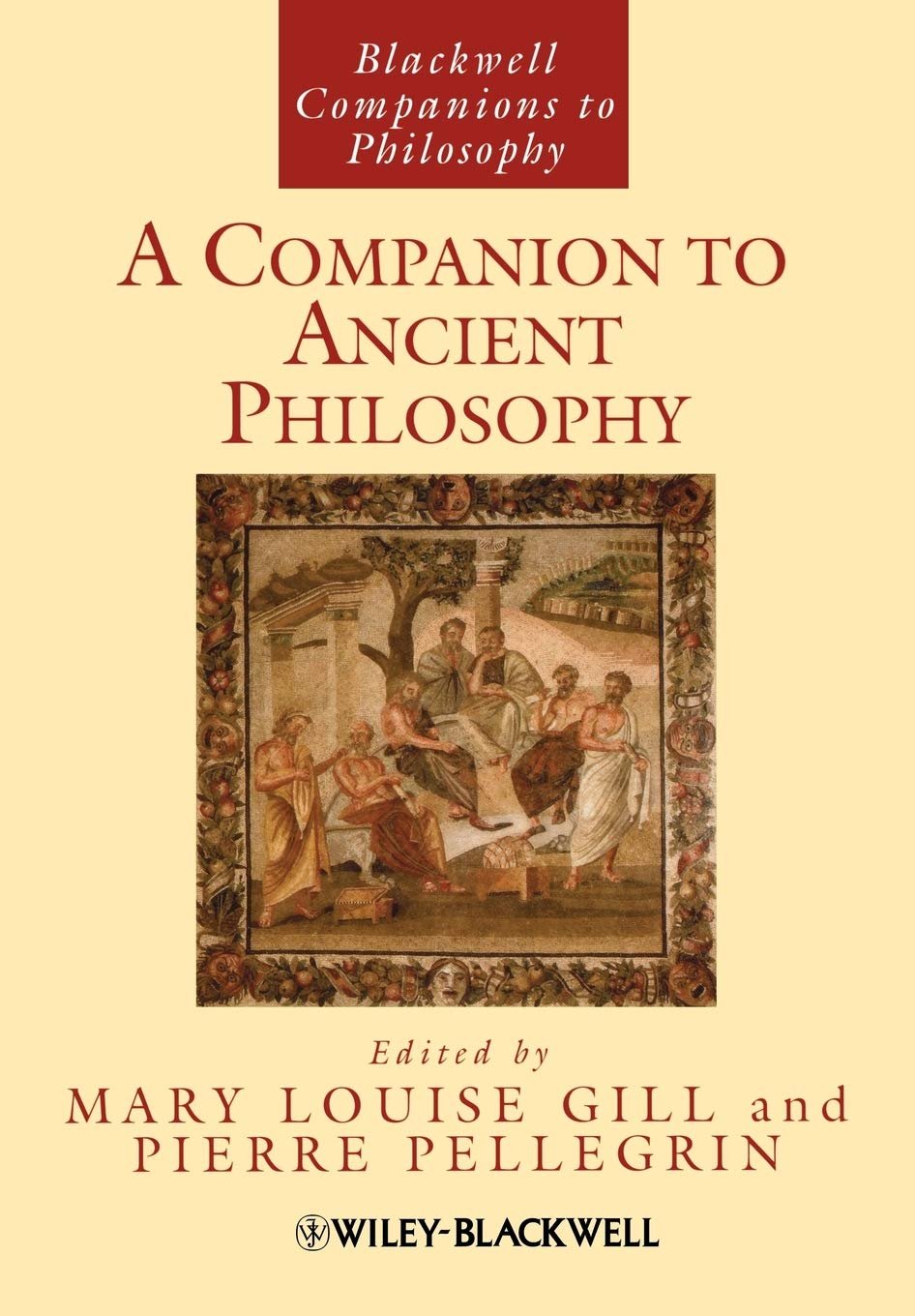- A Companion to Ancient Philosophy

- Editors: Mary Louise Gill & Pierre Pellegrin
- Publisher: Wiley-Blackwell
- Publication Date: January 7, 2009
- Type: Paperback
- Print Length: 832 Pages
- Product Description
A Companion to Ancient Philosophy provides a comprehensive and current overview of the history of ancient Greek and Roman philosophy from its origins until late antiquity.
- Comprises an extensive collection of original essays, featuring contributions from both rising stars and senior scholars of ancient philosophy
- Integrates analytic and continental traditions
- Explores the development of various disciplines, such as mathematics, logic, grammar, physics, and medicine, in relation to ancient philosophy
- Includes an illuminating introduction, bibliography, chronology, maps, and an index
- About the Editors
Mary Louise Gill is Professor of Philosophy and Classics at Brown University. She is the author of Aristotle on Substance: The Paradox of Unity (1989), Unity, Identity, and Explanation in Aristotle’s Metaphysics (co-edited with Theodore Scaltsas and David Charles, 1994), Self-Motion: From Aristotle to Newton (co-edited with James G. Lennox, 1994), and Plato: Parmenides (with Paul Ryan, 1996).
Pierre Pellegrin is Director of Research at the Centre National de la Recherche Scientifique in Paris. His authored works include Aristotle’s Classification of Animals (1986), and Aristote: Le Philosophe et les Savoirs (2002).
- Reviews
“A Companion to Ancient Philosophy is an extremely valuable aid for those interested in the study of ancient philosophy. The articles, written by leading figures in the field, provide the reader with a clear picture of the state of contemporary scholarship on all aspects of philosophy in the ancient world.” Daniel Devereux, University of Virginia
“This is an essential book not only for its information content but equally importantly, for its elucidation of research methodology. It offers something fresh and original even to those who have studied the field for a lifetime.” Enrico Berti, Università degli Studi di Padova
